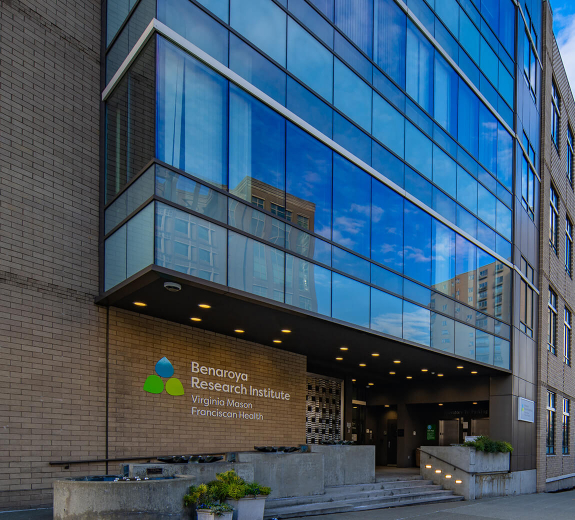A biologic asthma therapy called mepolizumab can reduce asthma exacerbations (also called asthma attacks) among children in low-income Hispanic and Black communities, according to a recent study from the Inner-City Asthma Consortium (ICAC).
"It’s essential to focus on these children because they are more likely to have the disease, more likely to end up in the emergency room, and more likely to die because of asthma — and they are often underrepresented in clinical trials," says Matthew Altman, MD, MPhil, the senior author of the study who conducts asthma research at Benaroya Research Institute (BRI) and treats asthma patients at UW Medicine.
The study was funded by the National Institute of Allergy and Infectious Diseases (NIAID) and the National Center for Advancing Translational Sciences, both part of the National Institutes of Health, and by GSK. NIAID also funded ICAC, now called the Childhood Asthma in Urban Settings (CAUSE) clinical research network.
Mepolizumab is an eosinophil-targeted treatment, which works by blocking a protein necessary for eosinophil (a type of white blood cell) development. Previous studies found that this therapy was effective in adults, but it had yet to be adequately tested in children, and had not been studied in low-income Black and Hispanic communities.
"Asthma, especially an asthma attack, is typically treated with steroids, which can have serious side effects especially for children," Dr. Altman says. "Eosinophil-targeted therapy is a key breakthrough because this is one of the first asthma therapies to target the actual cells and processes that cause asthma and it is much safer than steroids."
The new study enrolled 290 urban socioeconomically disadvantaged children and adolescents between ages 6 and 17 with relatively severe eosinophilic-asthma.
Of those patients, 146 received mepolizumab and 144 received a placebo, each added onto standard guideline-based asthma therapies. The researchers found that patients who received mepolizumab experienced a statistically significant 27% reduction in asthma exacerbations, indicating this is a modestly useful treatment in this population.
This study also aimed to learn why eosinophil-targeted therapy works very well for some, but not all, children with asthma. Through BRI’s Center for Systems Immunology, the research team had access to a state-of-the-art tool called airway transcriptome network analysis. This allowed them to examine nasal samples from these children with asthma in precise detail — hoping to find patterns among people who do respond, and those who don’t.
The research team was able to identify multiple key inflammatory pathways in cells lining the nose that indicated who would or would not respond to therapy and why. This is crucial information because it may ultimately allow doctors to prescribe the best therapy for a child right away, rather than needing to go through trial and error to figure out what works for which patient. Moreover, the findings point to potential new pathways that could be targeted for other treatment strategies in these groups of children most in need of better therapies.
"We were really excited to find some underlying mechanisms that explain who will or will not respond to the therapy and that point towards new personalized therapy approaches," Dr. Altman says. "It is fascinating to get to use these new tools and approaches to improve future medical care. These types of studies and biological questions are so important for kids with asthma, especially those with the most severe forms. It’s amazing to see data coming out of these studies that may ultimately have a big impact on children’s health and wellbeing."



